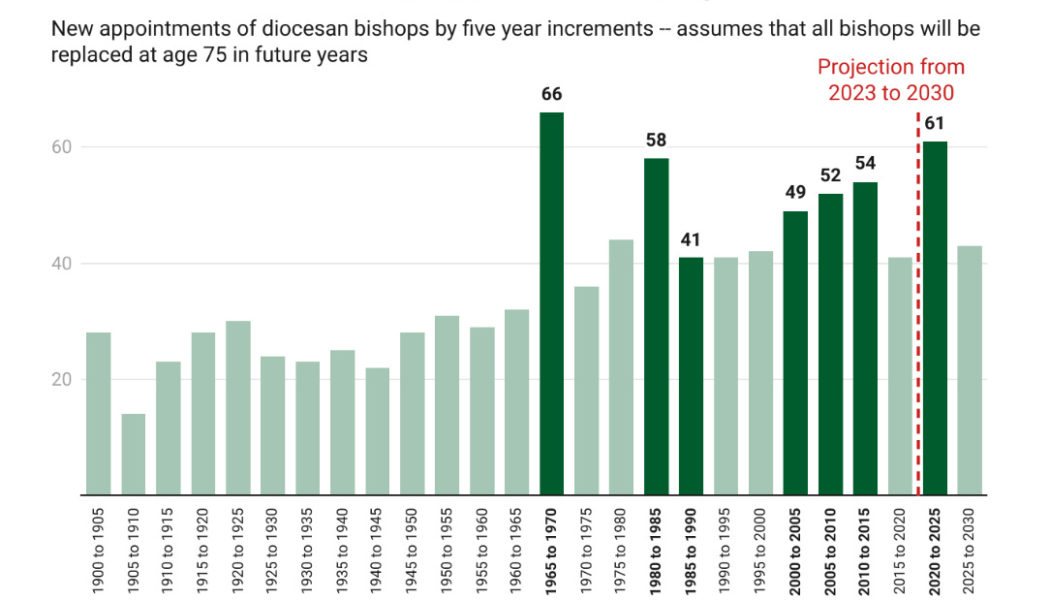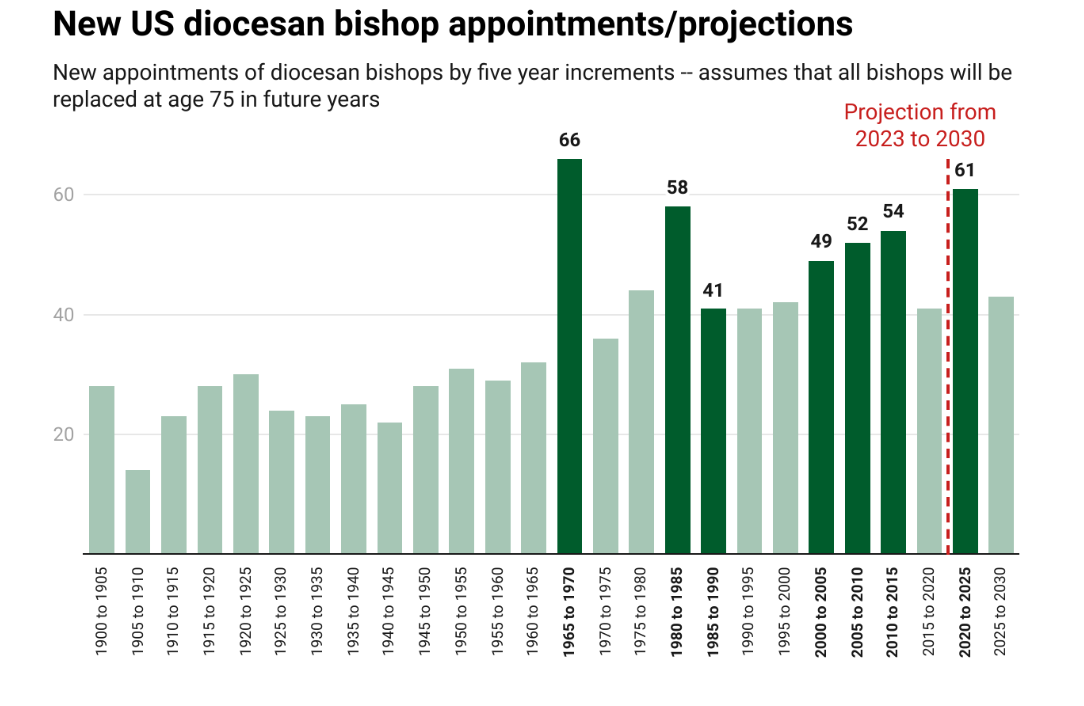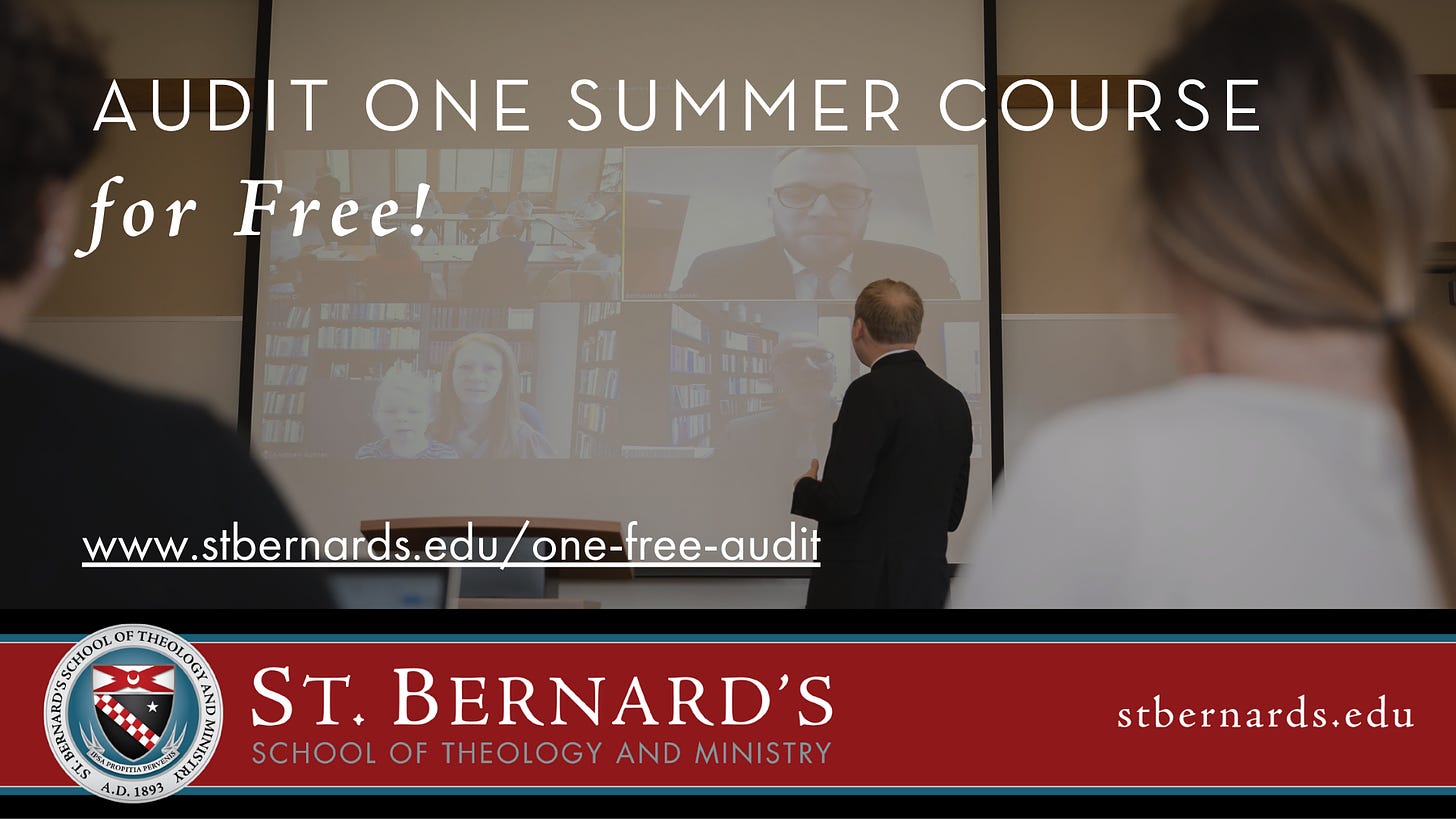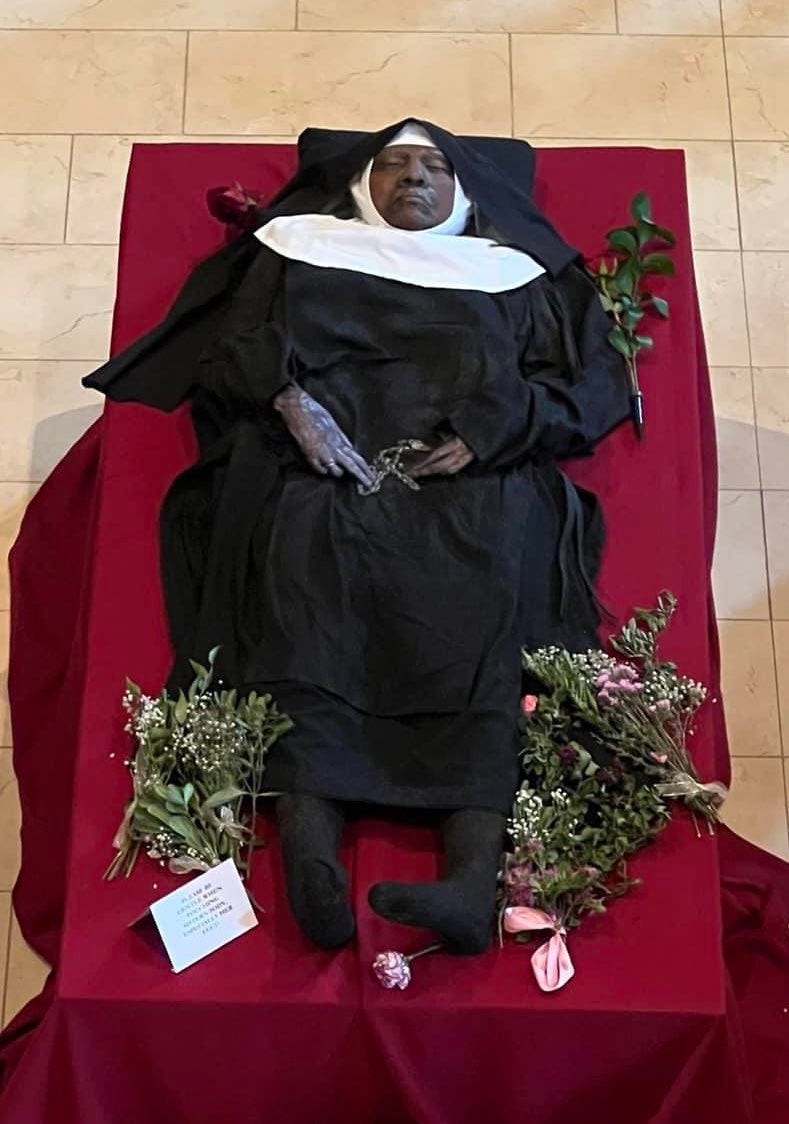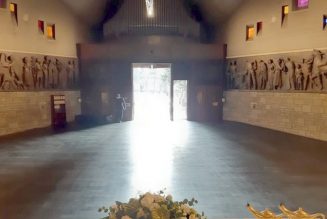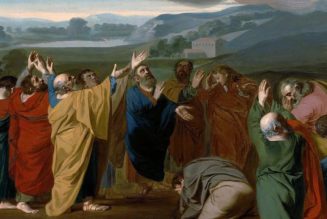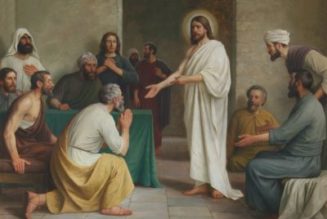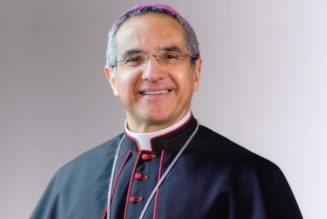Hey everybody,
Twenty-seven years ago this week — on May 21, 1996 — seven Trappist monks were martyred in Algeria, after spending two months in the captivity of the terrorist Armed Islamic Group.
The kidnappers had come to the Abbey of Our Lady of Atlas on March 27 of that year, kidnapping the monks in the middle of the night. The captors demanded the release of Abdelhak Layada, one of their group’s leaders, who was in prison and awaiting the execution of a death sentence.
The monks were killed in May.
While the Armed Islamic Group took responsibility for their killings, there is some mystery to their death, as years later, a French general testified that the monks had been killed by the Algerian Army, accidentally during a botched rescue attempt, and then beheaded to give the appearance that the AIG had done the killing.
There has been other testimony to that effect, but not yet any definitive conclusion, to my knowledge.
In either case, the monks were recognized in 2018 by Pope Francis as martyrs.
May the Tibhirine martyrs pray for us!
The news
Pope Francis this morning accepted the resignation of the 77-year-old Bishop Paul Bradley of Kalamazoo, who served two years beyond submitting his resignation at age 75.
Bishop Bradley will be followed by Bishop-elect Ed Lohse, a canonist and the vicar general of Erie, Pennsylvania.
But American diocesan bishops are still aging, and more U.S. diocesan bishops are 70 or older than ever before. In fact, 38% of American diocesan bishops will be up for replacement by 2028. That’s a lot.
When The Pillar’s Brendan Hodge crunched some numbers on all of this, he discovered something interesting — the retirement of diocesan bishops comes in cycles in the U.S., largely because the country is feeling residual echoes of the 1966 decision to require that bishops submit their resignations at 75.
Still, the average age of diocesan bishops in the U.S. is higher than it’s ever been before — giving Rome the challenge of filling a lot of diocesan sees in the next few years.
Presbyteral Pillar readers (in the good way) — when you get the call, you should say yes! Or at least seriously consider saying yes, if you get the call.
And you — along with everyone else — should read this important report on the aging American episcopate. Don’t miss it.
And don’t forget that you only find stuff like this at The Pillar — and our subscribers are the ones who make it happen:
(Also, on a personal note, I’d like to mention that I’ve been proud to call Bishop Bradley a friend for a long time — he’s a man of pastoral generosity and deep faith, and I’ll be praying for him in retirement.)
Indeed, canon law is clear — drawing from the Second Vatican Council — that the homily, as an integral part of the liturgy, is proper to clerics. But Bätzing insists that because of Germany’s “special situation” — namely, that its dioceses are already violating universal law anyway — the Holy See should give it a proper dispensation.
The Vatican is not likely to do that. But you can read the whole story here.
(And by the way, if you’re interested in the notion of lay preaching: Last August I asked whether Pope Francis might find a theologically appropriate manner of instituting lay preachers for outside of Mass, much as he’s done for catechists.)
It is not clear whether the vandalism is connected to the Syro-Malabar liturgy wars, but it is a reminder that in India’s Syro-Malabar Catholic Church, nothing is resolved about the liturgical split, despite the efforts of the pope and the Church’s bishops to find a solution.
We dug a little deeper into the story. What closed, or lost its legal status, was the academic faculty at La Purisima Seminary, which had its own legal status for the purpose of conferring degrees.
The faculty “voluntarily” requested dissolution of its legal identity, and experts in Nicaragua told us this was probably a compromise move, aimed at ensuring the government would not try to seize the physical property of the seminary, including its buildings.
It’s not actually clear whether the compromise will work — the government has already planted a rhetorical flag aimed at reminding Catholics that it can take the seminary property, if it decides to.
But for now, what’s changed is this: Seminarians won’t earn degrees for their studies. They’ll still have the work, and do the classes, but without earning a civilly recognized degree at the end.
This Pillar Post is brought to you by St. Bernard’s School of Theology and Ministry.
One Free Summer Audit! Take one online course for free ($375 value) on topics like the Legacy and Thought of Joseph Ratzinger/Benedict XVI, the Song of Songs, the Theology of Atonement, and more. We hope you’ll join us! Application deadline is June 23rd. See full list of courses here.
You guys love reading about Freemasons. And the subject of Masonry is an interesting and surprisingly relevant one — even this month, one American diocese has warned Catholics that they are not permitted to join Masonic lodges, and there are real canonical penalties, and moral consequences, for doing so.
Now, I’m not a joiner, so I don’t get it. But the attraction to Freemasonry is, for some people, obviously real — In fact, I was recently told that some Masonic lodges are seeing an increase in interest among younger Americans. Surprising, if true.
Then, at the end of those seven years, these Catholics were suddenly informed that joining the Masons was actually still forbidden under pain of excommunication – and always had been.
It’s a fascinating history — and Nico Fassino has written up the whole thing, with excellent documentation.
Again, more than 100 people, kidnapped from their towns, by gangs of criminals who burn, and slash, and destroy everything in their paths.
Witnesses told us that amid that violence, police are nowhere to be found.
Imagine, the effects of that for entire communities. Imagine how many thousands would lose their homes and livelihood, how many millions would flee their homes in the midst of that kind of crime.
Imagine the chaos.
Now, the recent spate of abductions is taking place in the Nigerian state of Niger — the same state where Fr. Isaac Achi was killed in his rectory back in January. And some locals told us they’re praying for Fr. Achi’s intercession as they pray for peace and safety in their state.
You can read our on-the-ground reporting, with accounts from the villages under fire, right here.
But whether you read the story or not, do me a favor. Stop what you’re doing right now, just for a minute, and pray for the people of Nigeria. Please.
Ask the Lord to bless them with peace, and courage, and faith. Ask him to make the Church an agent of God’s grace amid persecution and violence. Pray for the families. Pray for their priests.
Thank you.
Please keep praying for the Christians of Nigeria. They’re our siblings, really.
—
If you want to do more, here’s one opportunity. We at The Pillar are planning to give to local diocesan-run charities in Nigeria $10 for every new subscription in the months of May and June. If you’re not a paying subscriber, consider becoming one now, and we’ll send your first 10 bucks to Nigeria. If you want to give a gift subscription, we’ll send the first 10 bucks of that too.
We’ll provide in June a way for you to add to our Nigeria fund even without subscribing — but for the moment, if you want to support the Christians of Nigeria, and support directly our on-the-ground reporting, from Nigerian Catholic journalists themselves, considering subscribing to The Pillar:
—
A word on a few other stories, some of which we’re still working on.
Pope Francis on Saturday announced that he has asked Italian Cardinal Matteo Zuppi to head up a Vatican effort to negotiate peace between Ukraine and Russia. The cardinal is expected to try meeting with Putin and Zelensky, and then to (possibly) facilitate talks between them. The details are still being worked out.
Now, the Holy See has a historical track record of helping to negotiate peace, and it’s possible — though not especially likely — that Zuppi might have some success.
But it’s worth noting how the Holy See is talking about this, clarifying on Saturday that details and particulars are still being worked out. That suggests this is kind of a new idea, just coming together — and comes a week after Pope Francis met with the Ukrainian Zelensky in Rome.
Now, Pope Francis said back in April that he was working already on a confidential plan to negotiate peace in Ukraine, which he would eventually reveal publicly.
The Russians and the Ukrainians said fairly quickly they were unaware of any such mission.
While the Zuppi project seems well-intended, it also seems quite recently conceived, leaving cryptic and unexplained the mystery of the pope’s previously mentioned super-secret peace project.
—
We have been asked by a number of you about a lawsuit filed by Carmelite nuns in Texas against the Diocese of Fort Worth and Bishop Michael Olson.
It is, of course, unusual for a Carmel to sue the local diocese, or for the diocese to issue a statement alleging sins against the Sixth Commandment by the monastery’s superior.
We heard about the suit earlier this month, and to be honest, we’re still trying to unpack everything that’s alleged here.
At The Pillar, we of course, like when we can report things first. But we also know that’s not what you’re most looking for from us — when news breaks, you expect us to cut through all the crap, unpack the story fairly and clearly, and help make sense of a complicated pile of accusations and rumor.
On this story, we’re still working on it — and when we have something to contribute beyond a write-up of the lawsuit, which you can read anywhere, we’ll publish it. Be assured that we’re working on it, and if we can bring you something original and useful on this, we’ll do it.
For now though, let me just say — Yes, this is a highly unusual situation, involving some very charged allegations, and some very clear questions about canonical procedure. We’ll aim to bring you more!
The body of Sister Lancaster was exhumed recently, when sisters planned to transfer her body to the monastery chapel — and though her coffin was found to be cracked, her body is believed to be uncorrupted, four years after her death.
The sister’s body is now lying in the monastery chapel, and a rosary procession is planned for next week.
We’ll continue to follow this story, and keep you posted on its development.
—
Having the debate
Finally, if you’ll allow me, a bit of a personal comment.
After last week’s Tuesday Pillar Post, in which I discussed a bishop who had publicly criticized the pontiff sharply, I found myself in prayer considering my approach to the discussion, and to the question itself.
I heard from a lot of Catholics who said they appreciated the approach that I took, namely a legal and practical look at how the Vatican might handle such a thing. Thanks for that.
But I didn’t mention an element of the discussion that’s important to me, and important to discuss.
It is obvious that the Francis papacy has become an occasion of serious theological controversy, in which things that had been thought to have been resolved are apparently up for discussion again, in many official ecclesial circles — sometimes with papal criticism, as in Germany, and sometimes with papal approbation, as in the synod on synodality.
The Church is relitigating its interpretive frame for the Second Vatican Council, along with some of the accomplishments of the JPII papacy on morality and ecclesiology, and the emphases of the Benedict XVI papacy on liturgy.
A lot of that has been demoralizing or difficult for many Catholics.
And amid those controversies, as I’ve said before, someone is right, and someone is wrong — or at least, there is a right answer and a wrong answer.
Debate is often the way in which that is meted out, before definitive resolution by the Church’s teaching authority. In that sense, the debate over serious theological issues, among bishops especially, is important.
The debate is worth paying attention to, and covering clearly and seriously, as we do at The Pillar.
There is, though, an important question about how the debate takes place, and how we approach it.
It seems to me (and this is me offering an editorial opinion) that it’s essential for the good of our own souls, and the unity of the Church, that the debate be accompanied by an affirmation of our ecclesial communion, and preserving the charity which should be at the heart of the Christian life.
Here’s what I mean: If the Church debates theological issues in the same way that politicians debate debt ceilings, the sacrament of our salvation becomes reduced to a kind of sociopolitical organization in our own minds — an NGO, as the pope might say.
Christian debate, it seems to me, needs to be framed in a commitment to charity, unity, and docility to the Holy Spirit. If not, our natural passions will get the better of us, and we’ll aim to win — to vanquish or punish our foes — rather than to see the truth better preserved and proclaimed.
It is much harder to debate as sons and daughters of the Church, and brothers and sisters in Christ, than it would be as enemies on the field of rhetorical combat. And in this genuinely difficult time in the Church’s life, the danger is that we believers will lose our souls on the path to winning the debate — that we’ll dismiss our obligations of Christian charity to one another, or forget our obligation to Eucharistic unity.
What profit a man to vanquish his ecclesiastical nemeses, and to lose his own soul?
I don’t know how that plays out, but it seems to me important to say. For myself, I found a recently published essay by Professor Tracey Rowland a useful set of principles and reflections.
It also seems to me valuable that the U.S. bishops have, at recent meetings, preceded their debate with a period of prayer before the Blessed Sacrament.
It is part of the story of the Church right now that the bishops are having those prayer sessions, and reportedly aiming to undertake their debate in more fraternity — after a couple of years of extremely acrimonious discussion. It is also part of the story when the debate takes other shapes.
Indeed, it’s possible that part of the test of this period in the Church’s life is this: How do Christians engage one another amid fractious, difficult, and sometimes discouraging debate? How do they live as believers in a time that’s proven difficult, polarizing, and atomizing for many Catholics? What does ecclesial unity mean in that moment?
None of that means that the truth should not be discussed, or that the debate should be neutered for the sake of false charity. That would be a mistake, and have real consequences too.
But it does mean that we have an obligation to undertake the debate with the virtues of faith, hope, and charity — and with as much precision and clarity as can be mustered.
That isn’t easy. Arguably, it takes the gifts of the Holy Spirit for the Church even to have a chance of getting that right.
Fortunately, we’ve got the Holy Spirit.
It is also part of the story that there is a right and a wrong, that the aim of the debate is to preserve, protect, and proclaim the deposit of faith, in its entirety, for the salvation of the world and the glory of God.
May Christ — the way, the truth, and the life — triumph always.
Have a great week.
Please be assured of our prayers. And please pray for us. We need it.
Yours in Christ,
JD Flynn
editor-in-chief
The Pillar
This Pillar Post is brought to you by St. Bernard’s School of Theology and Ministry.
One Free Summer Audit! Take one online course for free ($375 value) on topics like the Legacy and Thought of Joseph Ratzinger/Benedict XVI, the Song of Songs, the Theology of Atonement, and more. We hope you’ll join us! Application deadline is June 23rd. See full list of courses here.
Comments 8
Services Marketplace – Listings, Bookings & Reviews
